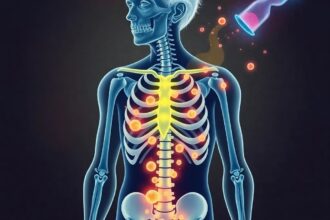Explore how aligning daily routines with natural circadian rhythms can optimize hormonal health, prevent imbalances, and manage conditions like cortisol dysregulation and thyroid disorders.
Discover how the science of chronobiology can help you align your daily routines with natural circadian rhythms to optimize hormonal health and prevent imbalances.
Understanding Circadian Rhythms and Hormonal Health
Circadian rhythms are natural, internal processes that regulate the sleep-wake cycle and repeat roughly every 24 hours. These rhythms are driven by a biological clock located in the brain’s suprachiasmatic nucleus (SCN). According to Dr. Charles A. Czeisler, a professor of sleep medicine at Harvard Medical School, Circadian rhythms influence almost every aspect of our physiology, including hormone production and release.
The Impact of Disrupted Circadian Rhythms
Disruptions in circadian rhythms, such as those caused by irregular sleep patterns or shift work, can lead to hormonal imbalances. A study published in the journal Endocrine Reviews found that shift workers are at a higher risk for conditions like obesity, diabetes, and cardiovascular disease due to disrupted cortisol and insulin levels.
Strategies for Aligning with Natural Rhythms
To optimize hormonal health, it’s crucial to align daily routines with natural circadian rhythms. This includes maintaining consistent sleep schedules, practicing good sleep hygiene, and timing meals appropriately. Dr. Satchin Panda, a professor at the Salk Institute, emphasizes the importance of time-restricted eating
to synchronize metabolic processes with circadian rhythms.
Managing Specific Hormonal Conditions
Chronobiology plays a significant role in managing conditions like cortisol dysregulation, thyroid disorders, and reproductive health. For instance, exposure to natural light in the morning can help regulate cortisol levels, while avoiding blue light at night can improve melatonin production.
Practical Tips for Hormonal Balance
Here are some practical tips to harness the power of chronobiology: maintain a consistent sleep schedule, expose yourself to natural light during the day, avoid caffeine and heavy meals before bedtime, and consider time-restricted eating.




